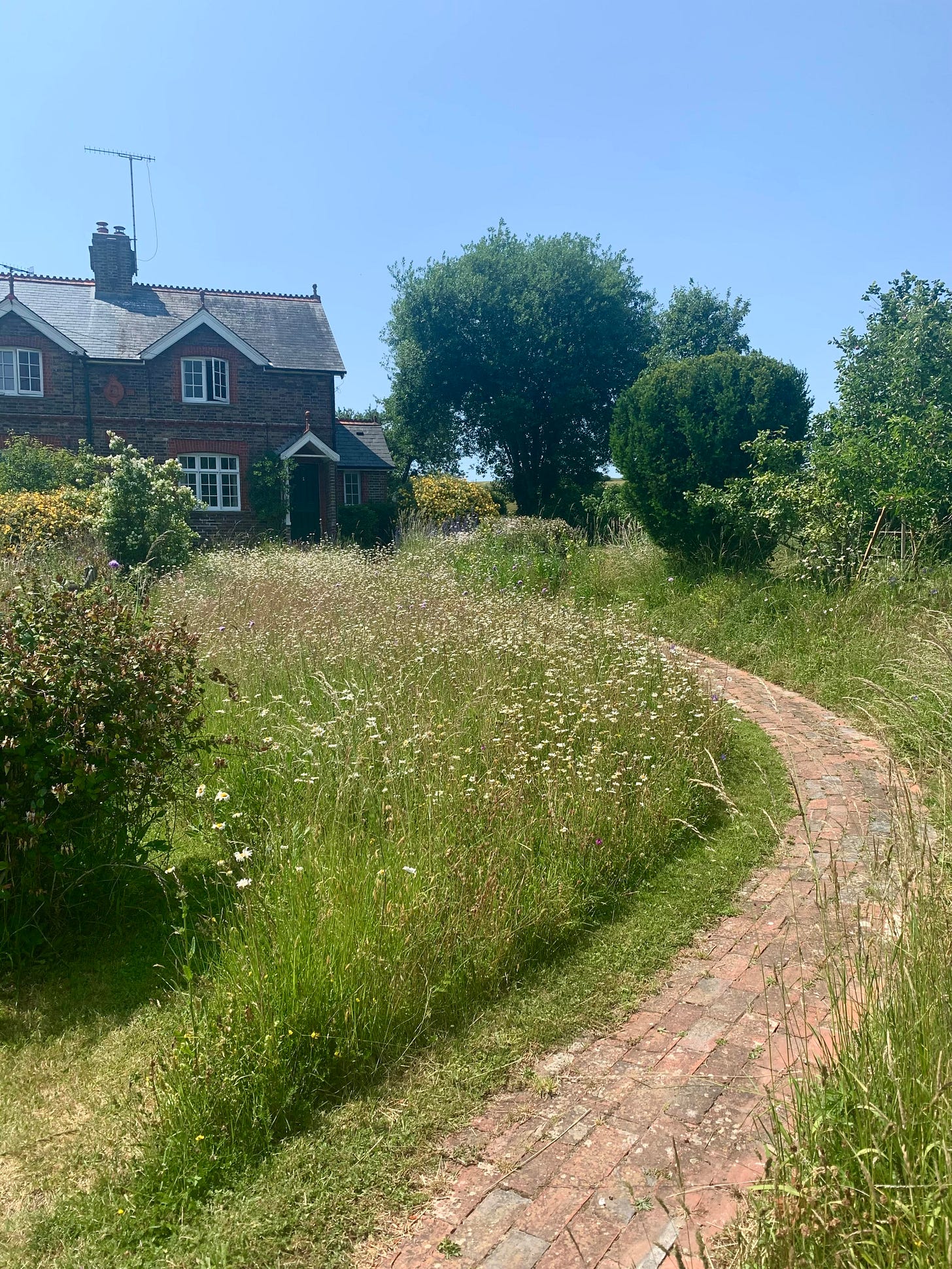GUEST POST: Alanna Duffield on why we don't get 'good' at grief
"Nothing can prepare me for the reality of it." The writer and poet on her experience of losing her best friend...
Almost ten years ago, I lost my friend Morgan to suicide. We were very close and when someone first told me what had happened, I laughed. I remember that part, the weird half-giggle I made in the pub where everyone else looked grave, the absurdity of the situation. I remember, five minutes or so later, lying on the tarmac behind a parked car. I remember, in a feat of fate, my brother walking around the corner at just the right moment. And I spoke the words that I no longer found funny. “He died.”
Today, I am bracing myself once again for the absurdity of loss. My dad. My lovely dad is coming to the end of his life after living with terminal cancer for nearly five years. Having moved back in with my parents since this latest round of bad news, I catch myself watching him through the kitchen window, observing the vegetable patch with his hands on his hips. I cannot comprehend a life where we - him and I - similar as we are, will not exist together.
They call it the worst club in the world. And, in many ways, bereavement really does feel like us and them. You realise how poorly equipped other people are to comfort you when they do not know what it’s like—to have fallen down a well and see the brightness - life as you once knew it - as a small, unreachable hole.
And yet, it’s also clear to me that I am no more equipped than they are for the reality of my dad dying. Nothing can prepare me for it.
As such, I don’t believe we ever get “good” at grief.
Every loss we endure is different. And in some horrific imagined situation where everyone you’ve ever known and loved dies one after the other, I think we’d feel the magnitude of each one. We would never get used to it. It would never stop hurting.
What I will say for grief is that it is not entirely unuseful. As with most clubs, you come away with new skills. Gifts.
You end up learning another language. A language of shared understanding and the knowledge of what to say. My friend Amy, who was also very close with Morgan, is always the first person I call when grief threatens to overwhelm me—because she speaks the language. She doesn’t try to fix my problem. She doesn’t make suggestions. She sits there on the phone and, together, we are sad.
You learn empathy, while everyone else revolves around sympathy. Empathy forces you to imagine what the griever is going through but, for us, we hardly have to imagine. We remember.
After almost ten years as a member of the worst club in the world, I also know one truth to hold up in almost every circumstance. It is this: the knowledge that life does, eventually, become liveable again. It is a truth I hold onto now like a raft in the swirling, foreboding sea. People can survive without a parent, just as I learned how to be alive without Morgan. And there were times, in those early months, when that felt unmanageable. Years later, I am able to laugh about him—not as a reaction to shock, but because I loved him.
Outside of loss, grief has taught me to be a better writer. It has taught me to learn about and like myself more. I am, curiously, more comfortable with being alone. I am better at expressing how I feel. I am more inclined to take risks with my life.
I would never have chosen grief for myself. But, since I have no choice in the matter, the least I can do is acknowledge what I have gained.
I was re-reading a poem by Mary Oliver the other day called Uses of Sorrow that serves as a good reminder for anyone going through hardship:
Someone I loved once gave me
a box full of darkness.
It took me years to understand
that this, too, was a gift.
Isn’t that beautiful? Both the poem and Alanna’s writing. I particularly relate to this idea of being ‘good’ at grief. I definitely went through a phase of thinking that next time I experienced it that it would somehow be easier as I’d have learned how to ‘cope’. But each experience with grief is so different. And we can’t be expected to cope, or get ‘over it’ quicker. That’s not how grief works. But while we can’t ever get ‘better’ at it, like Alanna says we wouldn’t choose it for ourselves… but it does gift us something. What do you think you can acknowledge you have gained from grief? Let us know in the comments below.
You can follow Alanna’s beautiful poetry on her Instagram here, and her grief page and newsletter can be found here and here. She also recently wrote this helpful piece for Cosmopolitan on how to love someone through grief. If you’d like to write something as a guest post for Crocuses In The Snow please do get in touch!





The language ❤️